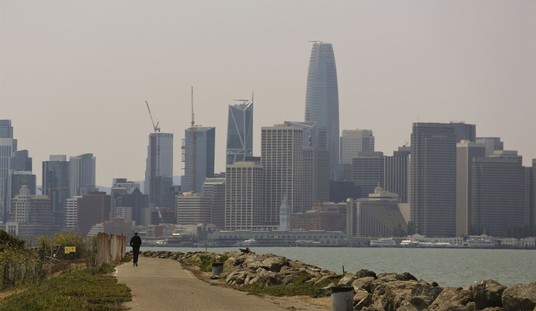Pakistan’s president announced that the government would restore a former Supreme Court justice removed by Pervez Musharraf in order to quell protests that have grown in intensity in the last few days. The move is widely seen as a retreat for Asif Ali Zardari and a victory for the Islamists, and once again calls into question the stability of the year-old civilian government in Islamabad:
Unable to crush street protests Sunday that spilled out of this city and threatened to reach the capital, the Pakistani government announced early Monday morning that it would restore the former chief justice of the Supreme Court and a group of other deposed judges in a major capitulation to opponents.
The move reflected the weakening position of President Asif Ali Zardari, a key U.S. ally, but it also signaled a peaceful end to a mounting political crisis in the nuclear-armed Muslim nation of 172 million. Zardari had resisted bringing back former chief justice Iftikhar Mohammed Chaudhry for months, but he faced mounting pressure from a broad coalition of opponents who demanded the reinstatement of Pakistan’s independent judiciary and threatened to march on the capital, Islamabad, until Chaudhry was brought back.
The decision marked an extraordinary victory for Pakistan’s legal community, which has been agitating peacefully for the judges’ reinstatement for the past two years, and for Zardari’s major political rival, former prime minister Nawaz Sharif, who joined the lawyers’ crusade last month and quickly became its most forceful advocate.
The US immediately hailed the move as a step in the right direction:
The U.S. government, which had been pressing Zardari and Sharif to find a peaceful way out of the crisis, immediately welcomed the move. In a statement, the U.S. Embassy in Islamabad called Gillani’s announcement “statesmanlike” and a “substantial step towards national reconciliation.”
Chaudhry got canned by Musharraf for refusing to take an oath to the constitution that Musharraf had amended in a bid to continue his rule under the guise of democracy. When Musharraf finally stepped aside and Zardari took the post, Nawaz Sharif and his allies immediately began pressing for Chaudhry’s reinstatement, as well as a number of other lawyers summarily dismissed. Islamists took up the cause as a way to undermine the authority of the elected government, but until recently had gained little traction on the issue.
Now, however, Sharif and his Islamist allies have created chaos in Pakistan. Sharif has until now been blocked from participating as a candidate in elections, thanks to convictions on corruption charges during Musharraf’s reign. Instead, he has become the leader of a growing opposition determined to deliver a knockout blow to the moderate governing coalition of Zardari and Prime Minister Yousef Gilani. Sharif has sided with the Islamists in opposing Pakistan’s fight against the Taliban and other terrorist elements, and the growth of his popularity should cause great concern in Washington DC and NATO circles.
Zardari, meanwhile, may be on his way out. In Punjab, police withdrew from the streets and the Post reports that government officials have begun resigning their posts. If Zardari cannot control the security forces of Pakistan, he may not last much longer — and given the options in replacements, that’s not a good sign.








Join the conversation as a VIP Member